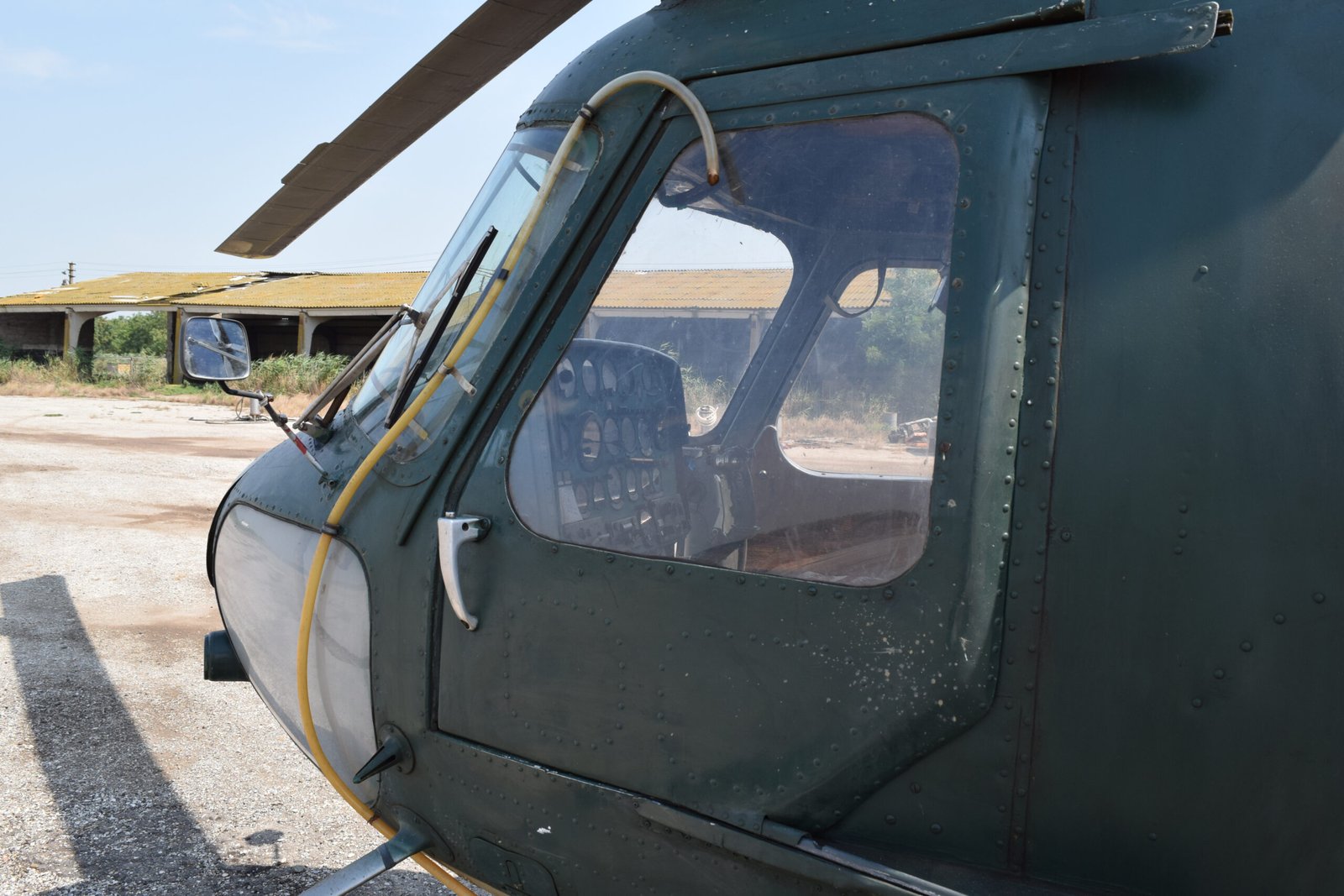aviation websites
Sky High Careers: Exploring the Many Paths in Aviation
The aviation industry is a thrilling realm that offers a plethora of career opportunities, whether you dream of soaring through the skies as a pilot or prefer to stay grounded in roles that support air travel. With advancements in technology and a growing demand for aviation professionals, there has never been a better time to explore this exciting field. Let’s take a look at some pivotal components that can guide your journey.
*Education and Training: Online Aviation Courses & Ground Schools**
For aspiring aviators, traditional classroom settings are no longer the only option. The rise of online aviation courses has revolutionized how individuals prepare for careers in this dynamic sector. From flight theory to navigation and meteorology, these courses provide flexibility and accessibility for students worldwide. Ground schools are another excellent resource, offering essential knowledge about aircraft systems, regulations, and flight operations.
Many institutions offer certifications that can be completed at your own pace, allowing you to balance work or other commitments while gaining valuable insights into aviation. Organizations like the Aircraft Owners and Pilots Association (AOPA) provide various resources including online training programs tailored for different levels—from beginners to seasoned pilots looking to refine their skills.
*Drones: A New Frontier**
Drones have taken the aviation world by storm! With applications ranging from aerial photography to agricultural monitoring and disaster response, unmanned aerial vehicles (UAVs) are creating job opportunities in fields previously unimagined. Businesses require licensed drone operators who understand FAA regulations governing UAV use.
As with traditional piloting, obtaining certification is crucial when it comes to flying drones commercially. The FAA offers comprehensive guidelines on how to become a certified remote pilot under Part 107—an essential step for anyone wishing to dive into this burgeoning sector.
*Aviation Jobs: Beyond Piloting**
While many dream of becoming pilots, numerous career paths exist within the aviation ecosystem. Air traffic controllers ensure safe takeoff and landing procedures; aircraft maintenance technicians keep planes in top shape; flight attendants provide customer service during flights; and logistics coordinators handle cargo operations behind the scenes.
It’s vital to recognize that each role contributes significantly to making air travel safe and efficient—each piece of this vast puzzle plays an integral part.
*Aviation Technology Training & Simulators**
As technology evolves rapidly within aviation, staying updated is paramount. Flight simulators have transformed pilot training by providing realistic environments where trainees can practice maneuvers without stepping foot inside an actual aircraft. These advanced tools enhance learning experiences while minimizing risks associated with real-world flying.
Moreover, many airlines now incorporate virtual reality into their training programs—allowing pilots or cabin crew members to experience scenarios they may encounter during flights without leaving the ground. This blend of technology with traditional methods ensures well-prepared personnel ready for every situation.

*Connecting with Aviation Communities**
Networking is essential in any profession—and aviation is no exception! Numerous blogs and websites cater specifically to those interested in all things airborne:
**Airline Pilot Central**
**FlightAware**
**Pilot Network**
**The Flying Magazine Blog**
**AOPA Blog**
Social media platforms also serve as fantastic resources where enthusiasts share insights:
Twitter accounts like @AeroNews
Instagram hashtags such as #aviationlovers
Facebook groups dedicated solely to pilots or avgeeks
In conclusion, whether you’re pursuing online courses or exploring new technologies like drones, there are countless pathways within the vast landscape of aviation waiting for you! Embrace this ever-evolving field where passion meets opportunity—your sky-high career awaits!
Soaring High: The Future of Aviation Technology
Aviation has always been a field that captures the imagination, and as technology continues to evolve, its future is looking more promising than ever. From online courses that make pilot training accessible to everyone, to the rapidly advancing world of drones, there’s never been a better time to be involved in aviation. Let’s explore the emerging trends and opportunities shaping the sky above us.
*Online Aviation Courses and Ground Schools**
The digital age has revolutionized how we learn, and aviation education is no exception. Online aviation courses have surged in popularity, allowing aspiring pilots to study at their own pace from anywhere in the world. No longer do students need to commute long distances for ground school; they can access comprehensive curricula with interactive modules covering everything from aerodynamics to regulations.

Institutions such as Pilot Institute and Embry-Riddle Aeronautical University offer certification programs tailored for both novices and experienced aviators seeking advanced skills. With engaging video content and quizzes that reinforce learning, these platforms provide flexible options for busy learners aiming to earn their wings without sacrificing their day-to-day commitments.
*Career Opportunities in Aviation**
As technology advances, new career paths are opening up within the aviation industry. Pilots remain at the forefront of this evolution. According to projections from the Federal Aviation Administration (FAA), there will be a substantial demand for pilots over the coming years due to retirements and increasing air travel. This surge opens doors not only for traditional airline pilots but also for roles in cargo transport, agricultural aviation, and charter services.
Moreover, as airlines invest heavily in innovative technologies—such as sustainable fuels or electric aircraft—the landscape of pilot jobs is broadening even further. Embracing continuous education through online resources ensures that today’s pilots stay competitive while adapting to these exciting changes.

*Drones: The New Frontier**
While traditional aircraft are crucial for transportation, drones represent an exhilarating frontier within aviation technology. Drones have evolved far beyond hobbyist toys; they are now essential tools across numerous industries including agriculture, delivery services, surveying, and emergency response.
With regulations evolving alongside technological advancements, drone operators must stay informed about FAA guidelines governing commercial operations. The FAA provides extensive resources on drone use including safety protocols and registration requirements—information vital for anyone venturing into this burgeoning sector.
*Aviation Blogs & Social Media Resources**
If you’re passionate about all things aviation or simply wish to stay updated with industry trends, numerous blogs and websites serve as excellent resources:
1. **Airline Reporter** – Offers insights into airline industry news with a focus on passenger experiences.
2. **Flying Magazine** – Covers pilot stories alongside tips on flying techniques.
3. **The Air Current** – Provides deep dives into aerospace technology developments.
4. **Plane Spotters Blog** – Engages readers with photography and information on various aircraft around the globe.
Social media platforms also thrive with vibrant aviation communities where enthusiasts share knowledge:
**Twitter:** Follow hashtags like #AvGeek or accounts like @FlyingMag
**Instagram:** Discover stunning aerial photography by following accounts such as @aviationdaily
**YouTube:** Channels like “Pilot Training” offer educational videos ranging from flight tips to aircraft reviews.
As we gaze towards an increasingly innovative future filled with possibilities in aviation technology—whether it’s through obtaining a pilot’s license via online courses or exploring drone applications—the sky isn’t just a limit; it’s an open gateway brimming with opportunities waiting to be seized!
Flight Paths: Exploring the Evolution of Aircraft Design
The world of aviation has always been a fascinating blend of innovation and tradition, continuously evolving since the Wright brothers took their first flight in 1903. While aircraft design has transformed dramatically over the decades, so too has the way aspiring pilots and aviation enthusiasts engage with this captivating field. Today, online aviation courses and ground schools offer unprecedented access to knowledge, while vibrant communities thrive across the internet.
With the advent of technology, pursuing a career in aviation has never been more accessible. Online aviation courses cater to a diverse audience—from those looking to become commercial pilots to individuals seeking to understand more about aerodynamics or air traffic control. These courses often provide flexibility for busy schedules, allowing students to learn at their own pace from anywhere in the world. Ground schools complement these online offerings by providing essential hands-on training and classroom instruction that covers everything from navigation and meteorology to safety protocols and regulations.

For many aspiring aviators, understanding potential job opportunities is crucial. Becoming a pilot is just one pathway; opportunities abound in areas such as aircraft maintenance, flight dispatching, or even air traffic control. The journey often begins with obtaining appropriate licenses through rigorous training programs—often facilitated by ground schools or specialized institutions—before stepping into roles like First Officer or Captain on commercial flights.
However, learning doesn’t stop after formal education. Aviation forums and communities have emerged as vital resources for both novice pilots and seasoned professionals alike. Websites like AvGeekery and PPRuNe (Professional Pilots Rumour Network) allow users to share experiences, seek advice, and discuss industry trends. Engaging with these platforms can greatly enrich one’s understanding of aviation while providing valuable networking opportunities.
In our digital age, social media also plays an integral role in connecting individuals passionate about aviation. Platforms such as Instagram feature stunning visuals that showcase aircraft designs from around the globe—whether it be vintage models or cutting-edge jets—and provide insight into everyday life within the cockpit through pilots’ personal accounts. Facebook groups dedicated to various aspects of aviation create collaborative spaces for discussions about techniques, gear recommendations, or even local flying clubs.
For readers interested in diving deeper into this realm from home or on-the-go, several blogs and websites serve as treasure troves of information:
1. **AirlineReporter** – Delivers news on airline operations alongside engaging travel stories.
2. **Flying Magazine** – Offers articles on flying tips, pilot health advice, product reviews, and more.
3. **The Aviation Herald** – Provides detailed reports on aviation incidents worldwide.
4. **AOPA (Aircraft Owners & Pilots Association)** – A resourceful site offering advocacy for general aviation pilots along with educational content.
5. **FlightGlobal** – Covers comprehensive news regarding commercial airlines and defense industries.
Additionally, YouTube channels such as “Captain Joe” deliver entertaining yet informative content that demystifies flight operations while sharing personal anecdotes from real-life pilots.
As we look ahead at future innovations—including electric planes made possible by advancements in battery technology—the importance of education remains clear; both formal training through ground schools and self-directed learning via online resources will continue shaping the next generation of aviators.
So whether you’re dreaming of soaring through clouds or simply curious about what goes on behind cockpit doors—embrace this ever-evolving field! Explore online courses; join forums; connect with fellow enthusiasts! Your adventure awaits among the skies above!
From Pilot to Passenger: Understanding the Evolution of Aviation Safety
Aviation safety has come a long way since the early days of flight. As technology advances, so does our understanding of how to keep both pilots and passengers safe in the skies. Today, aspiring aviators can benefit from a wealth of resources, including online aviation courses and ground schools that equip them with vital knowledge and skills. Let’s dive deeper into these options and explore how they contribute to the evolution of aviation safety.

Online aviation courses have revolutionized pilot training by making education more accessible than ever. Platforms like Coursera, Udemy, and specialized aviation sites offer programs covering everything from aerodynamics to navigation systems. These courses are designed for busy individuals who may not be able to attend traditional classroom sessions. By providing flexibility, learners can study at their own pace while honing essential piloting skills.
Ground schools play an equally crucial role in preparing pilots for the skies. Typically held in-person or through hybrid models, these schools provide a structured environment where students learn about aircraft systems, weather patterns, and regulations set forth by organizations like the FAA (Federal Aviation Administration). Ground school is particularly significant because it lays the foundation for safe flying practices; it teaches students about risk management—how to assess potential hazards before they lead to incidents.
As you delve deeper into your journey towards becoming a pilot, connecting with others in the field can be incredibly beneficial. Aviation forums and communities serve as invaluable resources for both novice and experienced pilots alike. Websites like PPRuNe (Professional Pilots Rumour Network) or AvGeek forums allow users to ask questions, share experiences, and exchange tips on various aspects of flying—whether it’s dealing with air traffic control or understanding complex regulations.
Moreover, engaging with fellow enthusiasts fosters camaraderie within the aviation community. Online platforms such as Reddit’s r/flying or Facebook groups dedicated to specific aircraft types offer real-time discussions about trends in aviation safety procedures or updates on new technologies. Such interactions often lead to insights that could significantly enhance one’s knowledge base while emphasizing a culture of learning among peers.
In addition to forums, several blogs and websites cater specifically to those interested in all things aviation-related. For instance:
1. **AirlineReporter** – Focused on airline news and travel experiences.
2. **FlightGlobal** – Offers extensive coverage on industry happenings.
3. **The Flying Magazine** – A staple for general aviation enthusiasts.
4. **AOPA (Aircraft Owners and Pilots Association)** – Provides resources for pilots at all levels.
Don’t overlook social media either! Twitter accounts like @FltOps (@FlightOperations) provide timely updates about operational changes while Instagram profiles such as @pilotlife showcase breathtaking views from cockpits around the world.
As we continue evolving our understanding of aviation safety—from innovative training methodologies in ground schools to thriving online communities—the importance of shared knowledge cannot be understated. The tools available today empower aspiring pilots not just with theoretical insights but also foster connections that enhance practical experiences.
Ultimately, whether you’re navigating through an online course or exchanging stories on an aviation forum, one thing remains clear: collective learning elevates our commitment towards ensuring safer skies for everyone—transforming every passenger journey into a testament of progress achieved through collaboration and innovation in this remarkable field called aviation!
Beyond the Clouds: Exploring the Future of Sustainable Aviation
The aviation industry is on the brink of a transformative shift, one that promises not only to enhance our travel experiences but also to prioritize sustainability. As we soar into this new era, aspiring pilots and aviation enthusiasts alike are eager to learn about the myriad opportunities available in this dynamic field. Online aviation courses and ground schools are emerging as vital resources for those looking to take flight—literally and figuratively.
Online aviation courses cater to a diverse audience, from novice aviators dreaming of their first solo flight to seasoned professionals seeking specialized training. These programs offer flexibility, allowing students to learn at their own pace while gaining essential knowledge about aerodynamics, navigation, and aircraft systems. Ground schools play a crucial role in pilot training, providing foundational skills alongside practical experience. They cover everything from regulations and safety procedures to meteorology and flight planning. Together, these educational pathways equip future pilots with the tools necessary for success in an ever-evolving industry.
As the demand for skilled pilots continues to rise—especially with advancements aimed at reducing carbon footprints—job prospects in aviation remain robust. Airlines are increasingly seeking environmentally conscious candidates who can navigate both traditional air travel and innovative solutions like electric or hybrid aircraft. Whether you aspire to fly commercial jets or explore roles in cargo transport or charter services, there’s no shortage of opportunities waiting just beyond the clouds.
To stay informed about developments in sustainable aviation practices and career prospects, joining online forums and communities can be invaluable. Platforms like Reddit’s r/flying provide a wealth of knowledge shared by experienced pilots and aviation enthusiasts. Here, members discuss everything from personal flight experiences to tips on navigating the certification process. Similarly, websites like PPRuNe (Professional Pilots Rumour Network) connect industry professionals who exchange insights on both technical topics and current trends affecting aviation.
In addition to forums, there’s an abundance of blogs dedicated solely to exploring various facets of flying—from environmental issues within the sector to innovative technologies reshaping how we think about air travel. Some notable blogs include “Airline Reporter,” which offers news updates combined with engaging storytelling about airlines’ efforts towards sustainability. Meanwhile, “Flying Magazine” delves into pilot lifestyle topics while providing advice for those interested in pursuing aviation careers.


Social media platforms have also become hubs for sharing knowledge and fostering connections among aviators worldwide. Instagram accounts like @pilotlife showcase stunning aerial shots alongside snippets of life as a pilot; meanwhile, Twitter serves as a fast-paced environment where experts share real-time news regarding sustainable initiatives within aviation.
With sustainability taking center stage in global conversations surrounding climate change, it’s imperative that both current aviators and newcomers keep abreast of innovations designed to lessen environmental impact without compromising safety or efficiency. From alternative fuels being tested by major airlines to advanced electric planes entering development phases—the future looks promising indeed!
In conclusion, whether you’re interested in becoming a pilot through comprehensive online courses or simply want to engage with fellow enthusiasts through vibrant communities online—the path ahead is filled with exciting possibilities! The skies may not be limitless yet—but they are certainly evolving toward greener horizons! So strap in; it’s time we all embrace this journey together!




